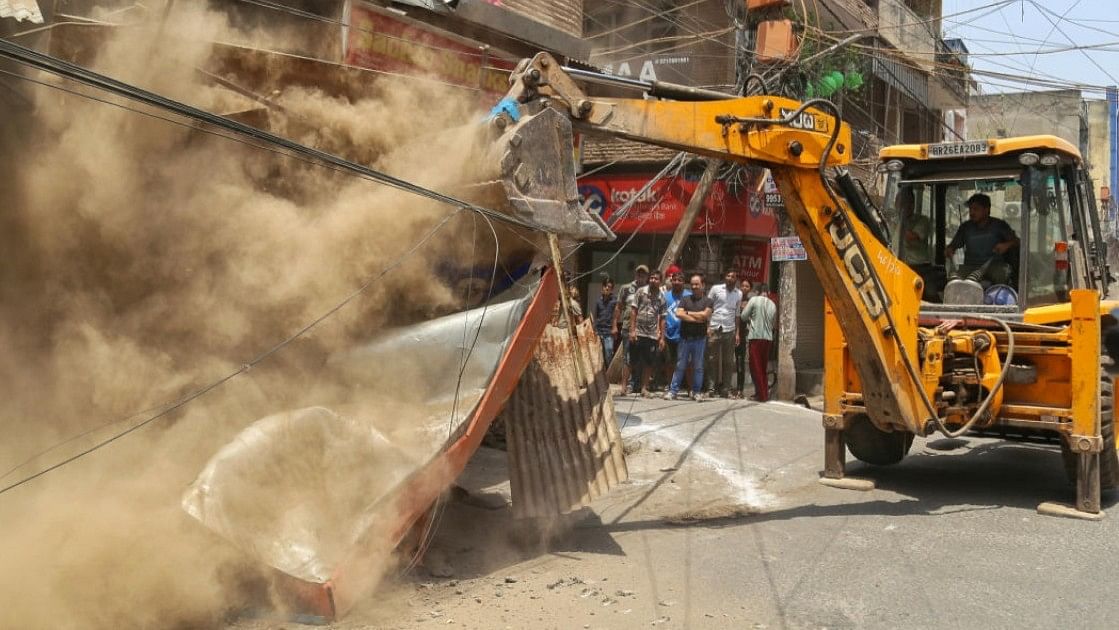
Representative image of a bulldozer being used to demolish illegal structures.
Credit: PTI File Photo
The Supreme Court’s pan-India guidelines on bulldozer justice are an affirmation of the best principles of the country’s constitutional scheme and rule of law, and a call to governments to abide by them. The court has made a clear indictment of governments that have used illegal encroachment as an excuse to demolish the homes of people who are accused of crimes. It has clearly said that the state has no power to punish a person without following due process.
It has issued the guidelines using its powers under Article 142 and added teeth to them by making officials accountable for the bulldozer action and prescribing punishment for violation of the orders. It has laid down safeguards such as provision of notice and time for appeal for those against whom actions are proposed. It also ruled that officials found to be in violation of the orders of the court “will be held responsible for restitution of the demolished property at their personal cost”.
The basic elements of the ruling are clear. It is based on the primacy of the rule of law, separation of powers, the presumption of innocence of the accused, and the illegality of collective punishment. These are also the elements of natural justice. The bulldozer has been employed as a political weapon against the minorities, mainly Muslims, and the marginalised sections maliciously and deliberately as an instrument of instant justice.
The court said: “The chilling sight of a bulldozer demolishing a building, when authorities have failed to follow the basic principles of natural justice... reminds one of a lawless state of affairs.” But governments have taken credit for enforcing this perverted justice and have not been daunted by criticism or court strictures in the past. It had its origin in Uttar Pradesh and governments in Madhya Pradesh, Uttarakhand, Gujarat, and Rajasthan have enforced it. It has thrived in an atmosphere where the prejudice against the minorities and the call for instant justice have made a deadly combination to deny the right to life to many citizens.
The court has delivered a good judgement but a judgment is only as good as its implementation. Past judgements and guidelines in the matters of hate speech and cow vigilantism have not been implemented by governments and law enforcement agencies.
Bulldozer actions have taken place even after the court issued preliminary guidelines some weeks ago. There will be attempts to find loopholes in the judgement to defeat its purpose. Though the judgement provides for legal notice, appeal and redress, many affected people may not be able to make use of them. The question whether those whose houses were bulldozed in the past will get the benefit of the judgement is also relevant.